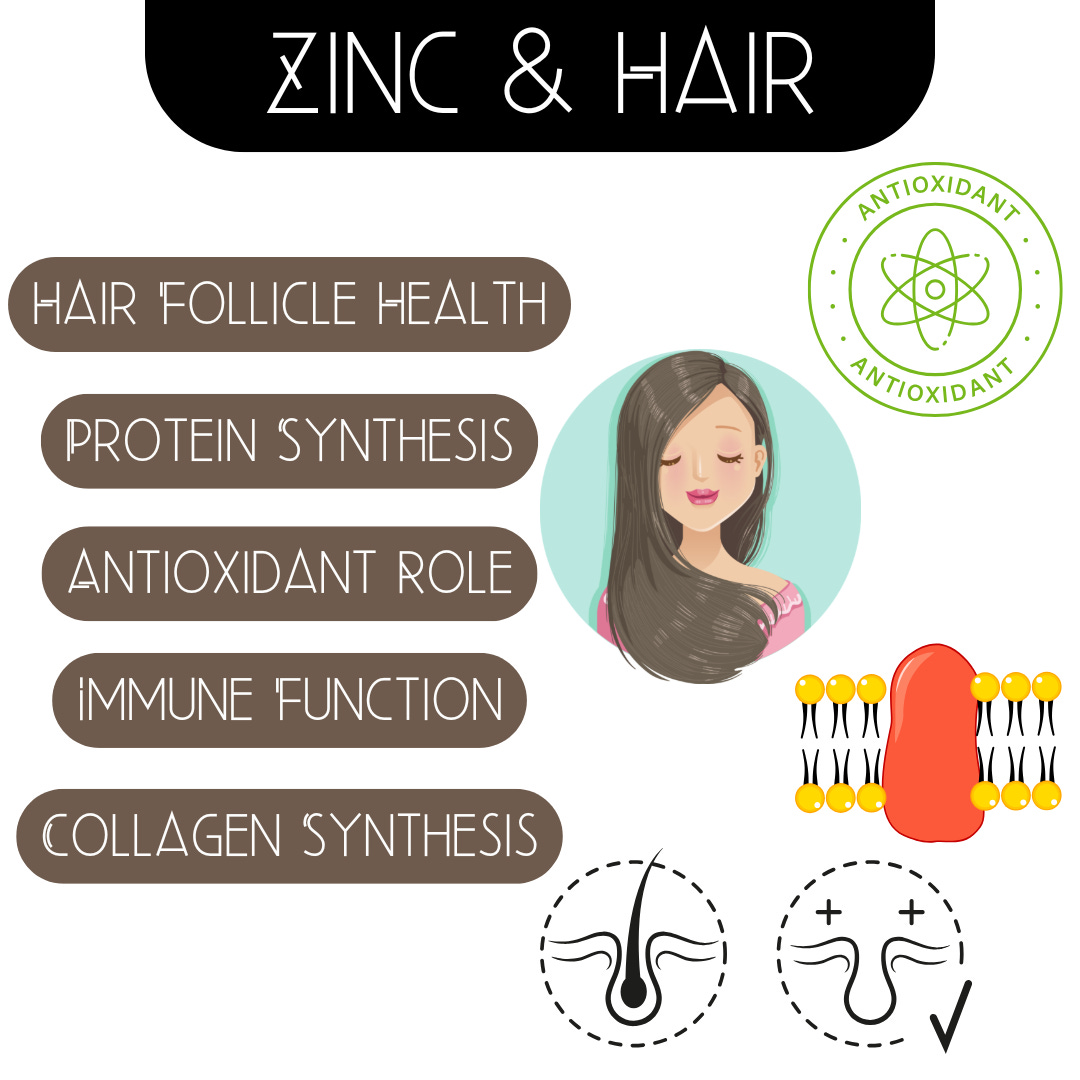Hair loss can be a devastating experience for women, deeply affecting self-esteem and confidence. While several factors may contribute to hair thinning or alopecia, vitamin deficiencies are emerging as the most significant—and thankfully reversible—culprit. Today, we will delve into the connection between women's hair loss and deficiencies in three key vitamins: biotin, zinc, and choline. We'll also explore how modern intracellular micronutrient testing, specifically the CMA (Cellular Micronutrient Assay) test, is transforming the way we detect and address these deficiencies.
Understanding Hair Loss in Women
Hair loss or alopecia in women manifests in various forms, from diffuse thinning across the scalp to more localized patchy hair loss. Traditionally, hair loss was often attributed to hormonal fluctuations, stress, genetics, or aging. However, mounting evidence suggests that nutritional deficiencies, particularly at the intracellular level, play a pivotal role in initiating and exacerbating this condition. Indeed, it's estimated that vitamin deficiencies are responsible for hair loss in approximately 99.9% of affected women.
The Top Three Vitamin Deficiencies Associated with Women's Hair Loss
Let's take a closer look at the three primary vitamins whose deficiencies are strongly linked with female alopecia:
1. Biotin Deficiency
Biotin, also known as vitamin B7, is critical for hair growth and overall hair health. It's involved in the synthesis of keratin, the primary protein constituting hair strands. Biotin deficiencies lead to brittle, thinning hair, and eventually noticeable hair loss.
Signs of deficiency: Hair thinning, brittle nails, skin irritation.
Natural sources of biotin: Eggs, nuts, legumes, whole grains, salmon, avocado, and sweet potatoes.
Peer-reviewed studies have established a strong correlation between biotin deficiency and alopecia. Replenishing biotin can significantly improve hair health and reduce further loss.
2. Zinc Deficiency
Zinc plays a central role in regulating hair follicle growth and repair. It contributes significantly to tissue repair and hormone production—both crucial for maintaining healthy hair. A deficiency in zinc is directly linked to hair loss conditions like telogen effluvium, characterized by diffuse hair shedding.
Signs of deficiency: Significant hair shedding, scalp dryness, slow wound healing, weakened immunity.
Natural sources of zinc: Meat, shellfish, legumes, seeds, nuts, dairy, eggs, and whole grains.
Clinical research and patient reports consistently emphasize zinc supplementation as effective therapy to halt and reverse hair thinning associated with its deficiency.
3. Choline Deficiency
Choline is an essential nutrient involved in cell membrane structure and function, fat transport, and methylation processes critical for healthy hair follicle function. Despite its vital role, choline deficiency often goes unnoticed because it's less commonly recognized compared to other nutrients.
Signs of deficiency: Hair thinning, impaired liver function, cognitive impairment, muscle weakness.
Natural sources of choline: Eggs, liver, poultry, fish, cruciferous vegetables, and nuts.
Emerging scientific literature is beginning to establish choline's significant role in hair health, highlighting the urgent need for awareness and clinical screening for deficiencies.
Detecting Deficiencies with Intracellular Testing Utilizing The CMA Test
Detecting these deficiencies accurately is crucial because standard blood tests often fail to capture the true nutritional status at the cellular level, where nutrients perform their functions. This gap is bridged effectively by advanced intracellular testing.
The CMA (Cellular Micronutrient Assay) test, available through danpursermd.com, is a state-of-the-art intracellular testing method. It evaluates the nutrient levels inside your cells, providing a much more accurate and comprehensive assessment of nutritional status. By highlighting deficiencies that conventional serum blood tests may overlook, the CMA test helps healthcare providers and patients take targeted actions to restore optimal nutrient levels, directly addressing the underlying causes of hair loss.
Taking Action: Addressing Vitamin Deficiencies
Once deficiencies have been accurately identified through intracellular testing, effective intervention usually involves dietary adjustments, targeted supplementation, or both.
Dietary Changes: Integrating foods rich in biotin, zinc, and choline can gradually correct deficiencies. Consuming a balanced diet that incorporates diverse nutrient-rich foods ensures long-term nutrient sufficiency.
Supplementation: Nutraceutical-grade supplements specifically tailored to correct identified deficiencies can rapidly restore optimal nutrient levels, providing quicker relief from hair loss symptoms and improving overall hair health.
Women's hair loss, though distressing, is often rooted in manageable nutritional deficiencies. Identifying and correcting biotin, zinc, and choline deficiencies can offer dramatic improvements in hair growth and overall health. Modern intracellular tests such as the CMA test provide a clear pathway forward to repairing all kinds of symptoms.
Don’t delay. A better you with better health is perfectly attainable. You just need to get started.








